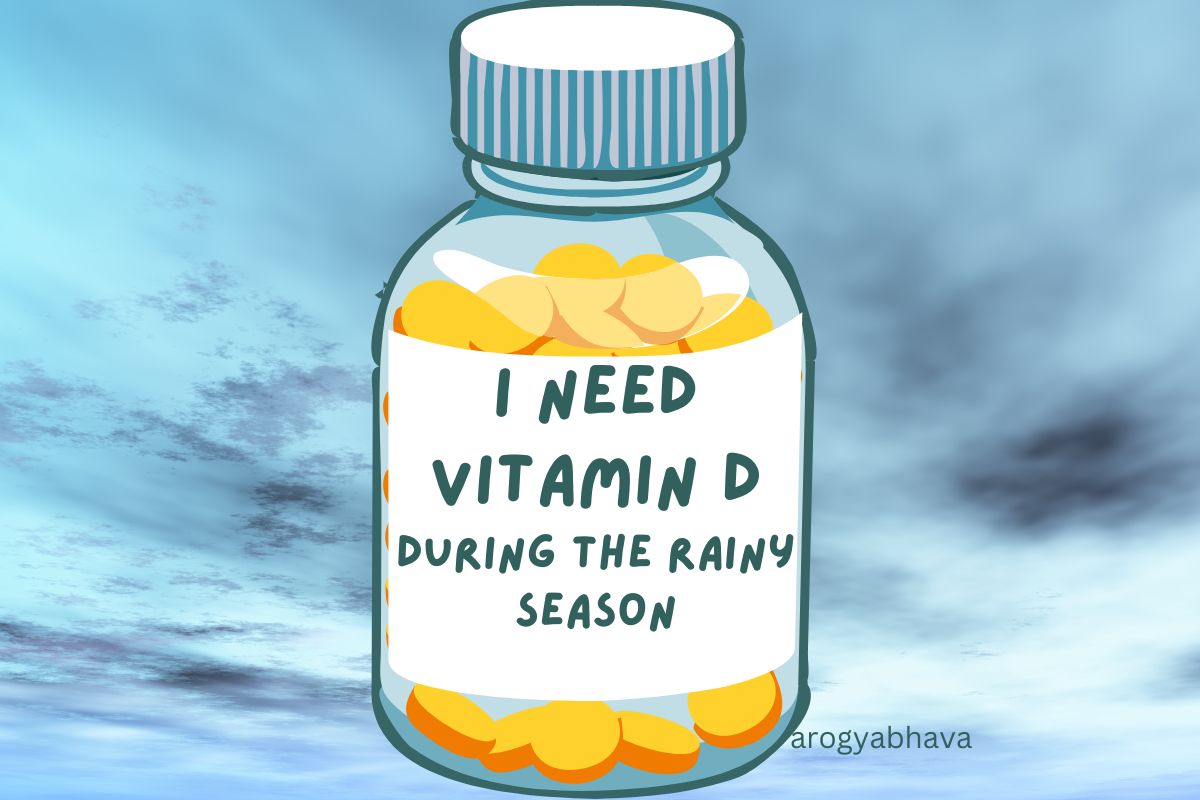How To Maintain Vitamin D Level During Rainy Season and Winter Season

In the realm of vitamins, there is one that shines brightly for its multifaceted benefits and essential role in maintaining overall health – Vitamin D. Often referred to as the “sunshine vitamin,” Vitamin D is crucial for various bodily functions and is instrumental in preventing a range of health issues.
In this enlightening article, we will delve into the significance of Vitamin D, its far-reaching benefits, the consequences of deficiency, natural sources, and practical ways to ensure you are getting an adequate supply of this vital nutrient.
The Role and Benefits of Vitamin D
Vitamin D is essential for good health because it is involved in so many physiological processes. It is famous for its ability to:
Bone Health
Vitamin D is a key player in calcium absorption and bone mineralization. It aids in maintaining strong and healthy bones, reducing the risk of fractures and osteoporosis.
Immune Support
It bolsters the immune system, helping the body fend off infections and promoting overall immune function.
Mood Regulation
Vitamin D is associated with mood regulation and mental well-being. Adequate levels have been linked to a lower risk of depression and other mood disorders.
Cardiovascular Health
Vitamin D may contribute to cardiovascular health by helping regulate blood pressure and reducing the risk of heart disease.
Cancer Prevention
Some research suggests that sufficient Vitamin D levels may play a role in reducing the risk of certain types of cancer.
Implications of Vitamin D Deficiency
Vitamin D deficiency can have far-reaching consequences on health. Insufficient levels have been linked to:
Bone Health Issues
Inadequate Vitamin D can lead to brittle bones, fractures, and increased susceptibility to osteoporosis.
Immune System Weakness
Low Vitamin D levels may compromise immune function, leaving the body vulnerable to infections.
Mood Disorders
Deficiency has been associated with an increased risk of depression, anxiety, and other mood disorders.
Increased Disease Risk
Some studies suggest that Vitamin D deficiency may be linked to an increased risk of chronic diseases, including cardiovascular diseases and certain cancers.
Sources of Vitamin D
Sunlight
The most natural source of Vitamin D is sunlight. When your skin is exposed to sunlight, it synthesizes Vitamin D. Aim for around 10-30 minutes of sun exposure a few times a week.
Fatty Fish
Salmon, mackerel, and tuna are rich sources of Vitamin D.
Egg Yolks
Egg yolks contain Vitamin D, but remember that it’s primarily found in the yolk.
Fortified Foods
Some foods, like dairy products, orange juice, and cereals, are fortified with Vitamin D.
Supplements
In cases where natural sources are limited, supplements can help ensure you meet your Vitamin D requirements. Consult a healthcare professional before starting any supplements.
Ensuring Adequate Vitamin D Intake
Sun Exposure
Spend time outdoors in the sun, especially during the early morning or late afternoon.
Balanced Diet
Incorporate Vitamin D-rich foods into your diet, such as fatty fish, egg yolks, and fortified products.
Supplements
If natural sources are inadequate, consider consulting a healthcare professional about Vitamin D supplements.
Optimize Your Vitamin D Levels During Rainy Season and Winter Season
Getting sufficient vitamin D during the rainy season can be challenging since sunlight, as the primary source of vitamin D synthesis in our bodies, may be limited. However, there are still several ways to ensure you’re getting enough vitamin D:
To ensure optimal vitamin D levels, keep in mind that there should be a balance between sun exposure, dietary intake, and supplementation.
Spend time outdoors
Whenever there is a break in the rain or when the clouds thin out, try to spend some time outdoors. Even brief exposure to sunlight can help your body produce vitamin D.
Seek morning sunlight
Morning sunlight tends to be less intense and more beneficial for vitamin D synthesis. Take advantage of any sunny mornings by getting outside for a walk or engaging in outdoor activities.
Choose vitamin D-rich foods
Incorporate foods naturally rich in vitamin D into your diet. Some examples include fatty fish (salmon, mackerel, sardines), egg yolks, fortified dairy products (milk, yoghurt), fortified plant-based milk alternatives, and mushrooms.
Consider vitamin D supplements
If you’re unable to obtain sufficient vitamin D from sunlight and diet alone, consult with a healthcare professional about vitamin D supplements. They can recommend the appropriate dosage based on your needs.
Check indoor lighting
Ensure that your home or workplace is adequately lit with natural or artificial light sources. While indoor lighting doesn’t provide vitamin D, it can positively impact your mood and overall well-being.
Get your vitamin D levels tested
Request a blood test to determine your vitamin D status from a healthcare provider if you’re worried about your vitamin D levels. This can assist in determining whether supplementation is required.
Before beginning any new supplementing programme, it is always advisable to speak with a specialist doctor or a qualified nutritionist to be sure it is suitable for your individual requirements and health issues.
Also Read: Winter Immunity Foods: 5 Foods To Strengthen Your Immunity